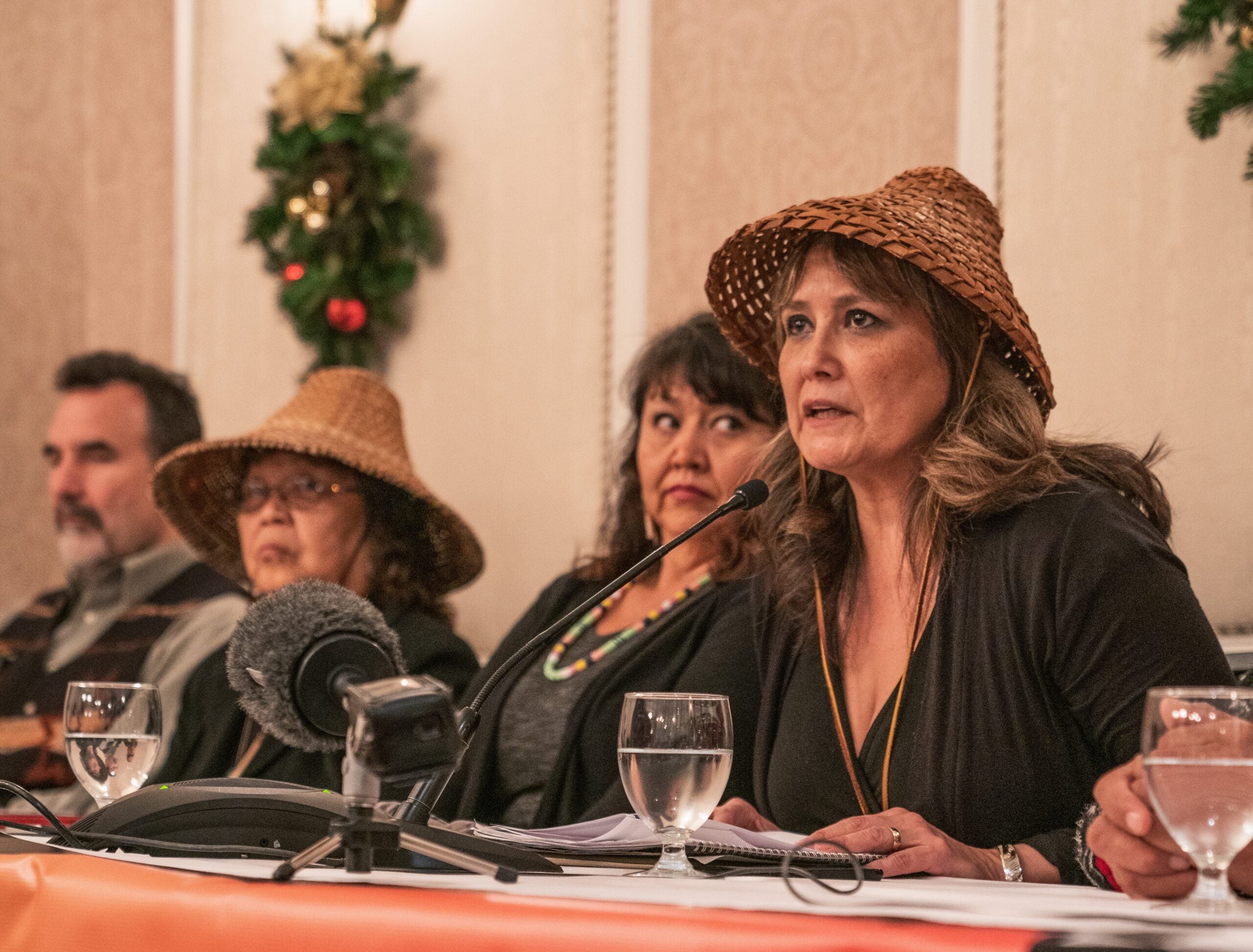U.S. Tribes Decry Trans Mountain Pipeline Expansion Approval
Despite admitted harm that the pipeline will cause, Prime Minister Trudeau prioritizes oil profits over Native people and the Salish Sea
Contact
Today, the Canadian government formally approved the construction of the Trans Mountain Pipeline Expansion. This is the latest move since February, when a Canadian federal agency recommended approval of the Trans Mountain Pipeline Expansion, a move strongly condemned by Coast Salish Tribes and conservation groups on both sides of the U.S.-Canada border.
The proposed tar sands pipeline expansion would triple oil tanker traffic through the Salish Sea, with the most serious documented consequences of imperiling endangered orcas, increasing navigation hazards for fishermen, and increasing the risk of a major oil spill.
“The orca and salmon know no border, and the risks to indigenous peoples in both Canada and the US also cross borders,” stated Suquamish Tribe Chairman Leonard Forsman. “The Trudeau government failed to do the right thing.”
In November 2018, representatives from U.S. Coast Salish Tribes joined Canadian First Nations in Victoria, British Columbia, to testify against the pipeline expansion before Canada’s National Energy Board. The February National Energy Board decision disregarded these and other comments shared during the permitting process. In spite of the harm their environmental review identified, the Board concluded that the project was in “Canada’s public interest.”
“Whatever Canada’s ‘public interest’ may be, this clearly places the burden on Coast Salish tribes and nations, and indeed all people and species that rely on the Salish Sea for nourishment, recreation and cultural and spiritual fulfillment,” said Swinomish Chairman Brian Cladoosby.
“The Tulalip Tribes are extremely disappointed with Prime Minister Trudeau’s approval of the Trans Mountain Pipeline. We face the very real threat of an oil spill that puts the Salish Sea at risk,” said Teri Gobin, Tulalip Tribes Chairwoman. “We will continue to oppose this and other projects that threaten our ancestral waters in the Salish Sea.”
“The Lummi Nation has long believed that the Trans Mountain Pipeline should not go forward,” said Lummi Nation Chair Jay Julius. “No actions should be authorized without in-depth consultation with the Nations and Bands impacted by the proposed project.”
BACKGROUND
In 2013, four Northwest U.S. Tribes — the Swinomish Indian Tribal Community, Tulalip Tribes, Suquamish Tribe, and Lummi Nation — intervened in Canadian permit proceedings over the new tar sands pipeline, joining scores of Canadian First Nations and conservationists, the cities of Vancouver and Burnaby, and the Province of British Columbia in opposition to the pipeline. The U.S. Tribes’ position before Canada’s National Energy Board represented a critical call to safeguard the Salish Sea from increased oil tanker traffic and greater risk of oil spills.
The Trans Mountain Pipeline Project calls for tripling the amount of oil shipped from tar sands fields in Alberta to approximately 890,000 barrels per day to the British Columbia coast. The pipeline would cause an almost seven-fold increase in oil tankers moving through the shared waters of the Salish Sea — from five oil tankers per month to one tanker every day — paving the way for an increase in pollution, noise, groundings, accidents, and oil spills.
The proposed tar sands pipeline expansion is one of several projects that could dramatically increase the passage of tankers and bulk carriers through the Salish Sea on both sides of the U.S.-Canada border.
REPORTER RESOURCES
- Take a look into the fight to protect the Salish Sea.
- View our case page for additional files.
- Photos of U.S. Coast Salish Tribal testimony before Canadian National Energy Board. Credit: Alex Harris for Earthjustice.

Additional Resources
About Earthjustice
Earthjustice is the premier nonprofit environmental law organization. We wield the power of law and the strength of partnership to protect people's health, to preserve magnificent places and wildlife, to advance clean energy, and to combat climate change. We are here because the earth needs a good lawyer.